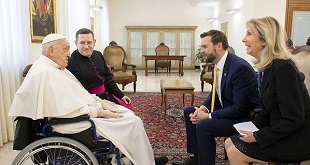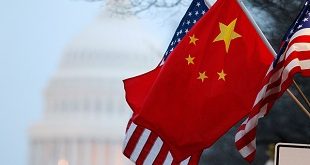
By Kasim Sajjabi
Adhere to set regulations and things ought to be fine, dismantle them and the future is predictably perilous
There is empirical evidence that setting terms facilitates peaceful change of government. Ideally, peace is a key foundation for development. Another school of thought; one in which Andrew Mwenda belongs, is that term limits can be dispensed with, if the end justifies the means! The debate therefore is should we support lifting term limits following the exceptional performance of a leader?
Let me start on Mwenda’s argument that a democratic transition (citing Somalia ) is not a guarantee that the country will be stable. On Somalia, its woes did not start after the transition from President Aden Abdullah Osman to President Shermarke, father of current Premier Omar Abdirashid Ali Sharmarke. The factors at play warrant a PHD scholarship not to mention sensitivity so I will be brief. Some observers feel the first president Aden may have nurtured nepotism causing widespread resentment. The social-cultural and clan dynamics spilled over through Said Barre’s overthrow in 1991. In 1977, Somalia’s then superior forces –nursing an ideal of (re)uniting Somalis in neighbouring countries, invaded Ethiopia almost capturing Addis Ababa. It took the support of various super powers to repulse the attack. The ensuing divide and rule led to scattering with perennial natural disasters exacerbating matters.
Other observers argue that the genesis to the protracted conflict is Said Barre’s fall after a lengthy presidency starting 1969. His fall in 1991 inevitably ignited competition between myriad power centres. The lesson even from this complex example is that long stayed leaders tend to create a short term bubble. Once they leave –inevitably through violence, the subsequent chaos unleashed onto the people and their property undoes all that was achieved over the long reign.
The argument that term limits and adhering to agreed procedure does not necessarily translate into stability and development is contestable. It is –to use an analogy –equivalent to asking if motorists who observe the Highway Code and traffic regulations face no accidents! The more deserving question would be –so which presents a higher vulnerability risk? Breaking the traffic rules no matter how good a driver or observing the rules as the proven way of reaching your destination safely. Logic tells us that the latter is preferable.
Indeed there are many more examples in history that peaceful transition spurs stability (and often times sustainable development) rather than violent change. We all acknowledge the feat by late Lee Kuan Yew’s transformation of Singapore over his 30 year tenure. Such examples are few and far apart. It is more evident that the over-stay of Mugabe, Nguema, Bokasa, Mobutu and Ahmed Toure indeed only led to instability and under development following a spiral of conflict. Conversely, have countries which maintained term limits and changed leaders peacefully seen stability and development. Or more pertinently, is there empirical evidence of a significant number of countries which are plagued by instability and underdevelopment precisely because they chose to maintain term limits. We could rephrase even this and say; is the undoing of all countries facing turmoil now or in recent times arising from a persistence to maintain term limits and observe constitutional checks?
The western world-our mentors in democratic values has demonstrated a tried and proven approach. Put in place regulations and adhere to them and things ought to be fine. Dismantle them and the future is predictably perilous! We have a long line of American ex-presidents including Jimmy Carter, Bush Senior, Clinton, Bush the son, Obama who despite achievements are content to hand over the baton and watch from the bench. Even the memorable Ronald Reagan (RIP) after whom the famous Reaganomics theory was coined bowed out when their term expired. They left term limits alone.
Closer home, history teaches us through Nyerere-Mkapa-Kikwete (Tanzania), Mandela-Tabo Mbeki-Jacob Zuma (South Africa) that peaceful transition has its dividends. Whether or not the peace has been squandered is discussion for another day. These countries stand a better chance of developing than those which reject peaceful transition.
Botswana, confessedly may not have tapped its full potential from natural resources but it presents a reasonable example on several fronts; one that revolutionaries can indeed hand over to civilians. Two, that a President could serve his term and if the people so wish could return after others have been tried and found wanting.
Botswana which has seen four presidents since 1966: Serese khama (1966-1980), Ketumire Masire (1980-1991 and 1991-1998) to Festus Mogae (1998-2008) to Ian Khama Serese Khama (2008 to date) is a true icon of stability. The moral: Peaceful transition may not be synonymous with remarkable development, but it certainly ensures stability. And as our good President, Yoweri Museveni, says; peace and stability are the preconditions to development.
The proponents of no term limits want us to believe Africa has its own unique challenges and needs local solutions. The question is why experiment with something we have no evidence about when the winning formula is there for all to see? I am a great fan of President Museveni because, now in my fifties, I am not oblivious to the social-economic changes. Who would not want to see a Singapore indeed? But again, who would want to see the country degenerate into chaos?
History indeed teaches us through countries facing resultant mayhem after lengthy leadership tenure: The troubles of Yemen today are in part because of former President Ali Abdallah Saleh’s long (and naturally contested) service for a record 33 years (1978-1990-2012). The resultant power struggles tainted with ideological differences is responsible for current bedlam. Syria’s Bashar al-Assad, president from 2000 and of equal significance succeeded his father, Ḥafiz al-Assad, who had ruled Syria since 1971 (29 years). Their apparent dynasty (and combined protracted stay) partly explains the regional unruliness and bloodshed.
By lifting term, age, or other limits – no matter how impressive an incumbent’s record – we set a questionable precedent. That some can change goal posts to suit their ends. More frightful is that those who are opposed to peaceful transition inadvertently become architects of their own violent removal.
****
Kasim Sajjabi is Ugandan disability & project planning and management consultant currently employed in the NGO sector in Somalia.
 The Independent Uganda: You get the Truth we Pay the Price
The Independent Uganda: You get the Truth we Pay the Price



